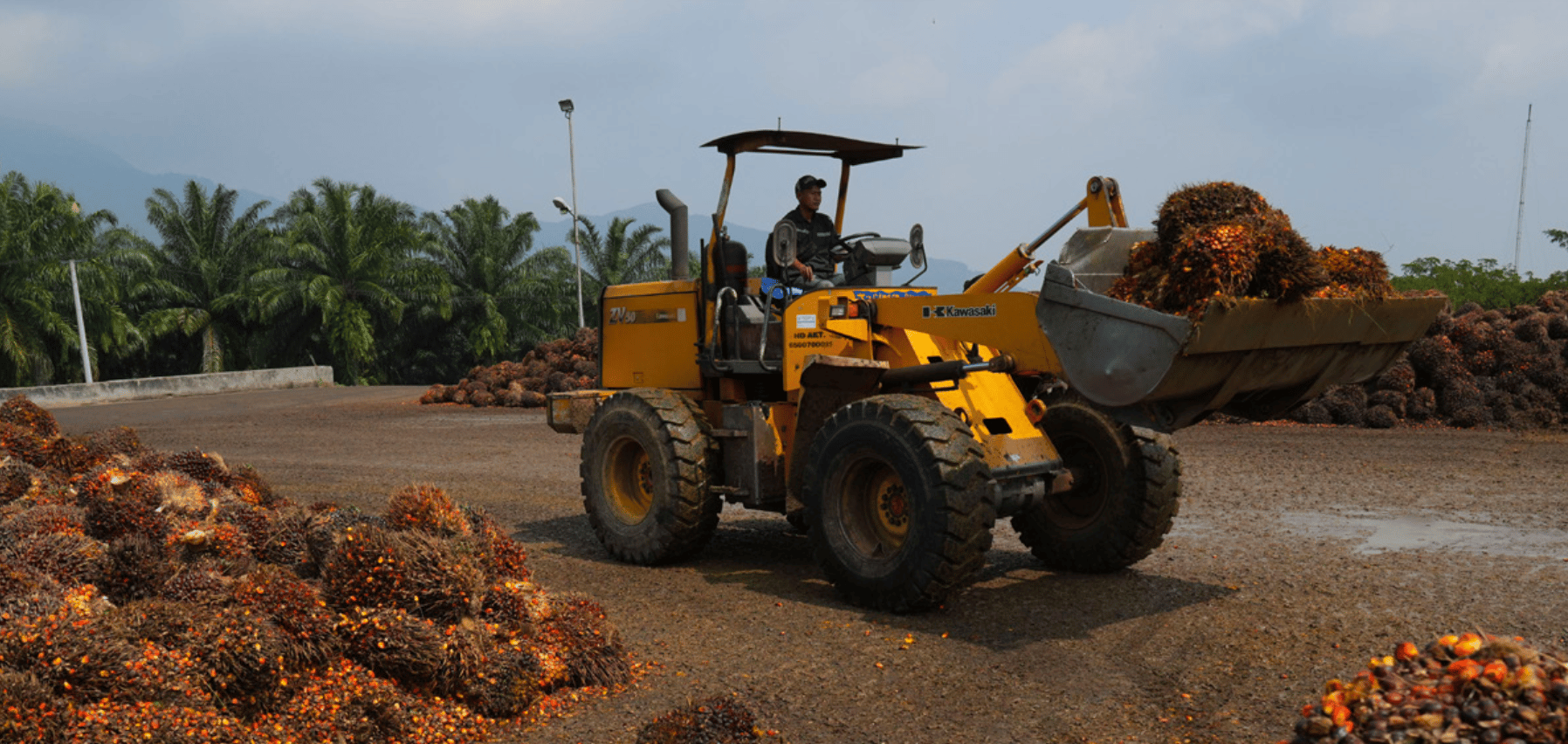BY TIANA CLINE
Current processes that track commodities such as palm oil through the supply chain require a lot of time and effort to perform, and often leave out valuable information around sustainability claims. Can blockchain solve the problem?
IN ITS PUREST FORM, PALM oil has a deep red color and a rich fragrance. When it was first discovered by Ca’da Mosto, a 15th-century explorer, he documented that it has “the scent of violets, the taste of olive oil and a color which tinges food like saffron”. Palm oil has been consumed as both food and medicine for thousands of years in West and Central Africa. While it remains a beloved, traditional part of African cuisine, it is a product that has become industrialized globally – bleached, refined, deodorized and relabeled to the point that it is now a hidden, food-like substance. Today, palm oil can be found in everything from ultra-processed foods to cosmetics and household cleaning products. It’s an indispensable ingredient, one linked to controversy ranging from slave labor to deforestation and greenhouse gas emissions. Can the blockchain help?
“Technology is a significant enabler of traceability and transparency, especially when it comes to knowing exactly where our raw material is coming from, even when it passes through many different hands on its way to us,” says Andrew Wilcox, the senior manager for sustainable sourcing and digital programmes at Unilever. “Getting full traceability and transparency in our supply chain is a crucial part of this journey.”
According to Wilcox, current processes that track commodities – such as palm oil – through the supply chain require a lot of time and effort to perform, and often leave out valuable information around sustainability claims. “There are currently no viable methods for preserving origin data at the scale of the commodity supply chain. This means that by the time the commodities are manufactured into products for consumers, products are simply marked as being sustainable or non-sustainable. This results in consumers rightfully questioning some of these claims.”
And that is where GreenToken comes in, a ‘chain-of- custody’ blockchain developed by SAP to help companies keep track of their bulk commodity supply chain sourcing, especially for raw materials like palm oil which is known for being especially difficult to trace.
“The supply chain is long and complex and until recently, has not had the benefit of a joined up digital transformation in recording palm [oil] movements from end-to-end,” says James Veale, GreenToken’s co-founder. GreenToken is one of the first initiatives to address that and make it into a repeatable standard.
“Ninety percent of the world’s raw materials are traded on a bulk basis. This means they are mixed with other identical raw materials at some point in the supply chain, causing most of the information to get hidden or lost,” adds Wilcox. “With GreenToken, tokens are created by commodity buyers (mills in the case of palm oil) and a range of information related to the crop (origins or sustainability credentials) are captured within the token. As the crop moves to each stage of the supply chain (e.g., a refinery), a request is made
o transfer the digital tokens.” The blockchain tokens are therefore a digital twin for the crops, enabling a ‘virtual segregation’ even if the materials have been mixed with materials from a different source.
“The GreenToken blockchain has the ability to record RSPO certified palm at the grower delivery to the mill level and track that palm throughout the extended supply chain,” explains Veale. “In this way, the sustainable volume is made transparent on the blockchain wherever it may be in the supply chain, giving the end buyer a lot of confidence in their purchase.”
Certification from the Roundtable on Sustainable Palm Oil (RSPO) can take many years to achieve and the proven certified sustainable percentage is relatively small.
“End users can only claim that their palm oil is certified sustainable if they can trace it back to grower deliveries to an originating crush mill. As the supply chain is long and complex with much commingling and processing, and as off takers do not want to make unsubstantiated claims,” says
Veale. “Digital systems like blockchain can help carry this proven sustainable certification along the value chain to the off-taker, quicker, cheaper and with full auditability and so accelerate the evidence down the supply chain to the end consumer.”
Palm oil is the most land-efficient vegetable oil and the main source of livelihoods for millions of farmers and communities from Cameroon to Sierra Leone. There are 10 countries that make up the Africa Palm Oil Initiative with the biggest plantation (to date) sitting in Liberia.
As Russia’s War on Ukraine rages on and sunflower oil exports drop significantly, food producers are struggling to seek replacements and palm oil is making an unforeseen comeback that could potentially derail sustainability efforts if technology like the GreenToken blockchain doesn’t step in.
According to one plant-based company in South Africa that originally abstained from using palm oil, the sunflower oil shortage has made them seriously
Ultimately, the GreenToken blockchain will not only give consumers much-needed assurance that the palm oil they’re using is ethically-grown, it will help recognize the sustainability efforts of growers and smallholder farmers. “When we have a system that is potentially able to maintain and verify a tamper-proof record of commodities and their credentials, it gives more confidence that the premiums we pay for sustainable raw materials are impactful and can incentivise the production and purchase of sustainable commoditiesthroughoutthesupplychain,”saysWilcox.“We want our consumers to have the confidence when picking up a Unilever product that the product has been made with sustainable palm oil.”
